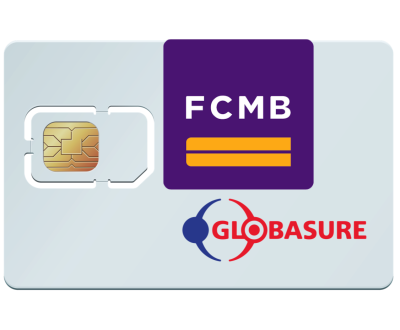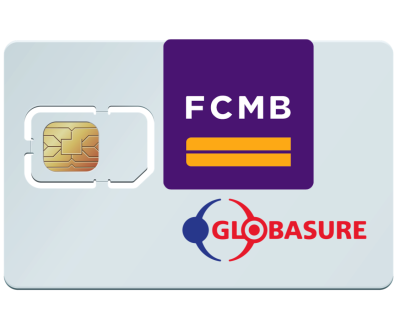Mixed reactions have continued to trail the cashless policy introduced by the Central Bank of Nigeria (CBN) in January 2012.
The implementation of the policy commenced in Lagos in 2012 but it was extended to the Federal Capital Territory (FCT), Rivers, Kano, Ogun, Anambra and Abia states in July 2013.
While some die-hard cynics describe the policy as just another economic jargon that may not be feasible, others say it will boost the country’s economic growth in line with global best practices.
The policy aims at reducing the amount of physical cash in circulation; thereby encouraging more electronic-based transactions in payment for goods and services
The policy, as enunciated by the CBN, entails “cash-based transactions and stipulates a cash handling charge on daily cash withdrawals or cash deposits that exceed N500,000 for individuals and N3,000,000 for corporate bodies.’’
The CBN Governor, Mallam Sanusi Lamido Sanusi, explained that the cashless economic policy was designed to “promote financial intermediation and financial inclusion, while minimising revenue leakages and eliminating incidence of robbery. It will also reduce the amount of cash payment and encourage electronic payment’’.
Sanusi said the policy became imperative because the cost of cash and associated risk of cash-driven economy to Nigeria’s financial system was ever increasing.
“The policy on withdrawal allows individual customers to make a free cumulative withdrawal of N500, 000 daily across the counter and ATM. Withdrawal above the free limit will attract processing fee of three per cent for every N1, 000 above the limit.
“Corporate customers are allowed to make free cumulative withdrawal of N3,000,000 daily. Withdrawal above the free limit will attract a processing fee of five per cent for every N1,000 above the limit.
“The policy on lodgment allows individual customers to make a free cumulative lodgment of N500, 000 daily. Lodgment above the free limit will attract processing fee of two per cent for every N1, 000 above the limit.
“Corporate customers are allowed to make free cumulative lodgment of N3, 000,000 daily. Lodgment above the free limit will attract a processing fee of three per cent for every N1,000 above the limit,’’ he said.
Sanusi said the appropriate mechanism for e-payment had been deployed to facilitate the smooth running of the scheme.
The CBN governor listed the mechanism as Point of Sale (POS) Terminals, Automated Teller Machine (ATM), Web, Mobile Phones, Internet Banking, among others.
Mr Tunde Lemo, the CBN Deputy Governor (Operations), said the all constraints to the smooth operation of the scheme were being addressed.
He said: “We know there will be constraints; the constraints are there for us to see. Of course, we will solve all those complaints; now we know the areas that are well served, we know the areas that we need to deploy technology and we know where we just need to overlay services because we know the facilities are just there.
“Of course, that was why we deferred the payment of charges for three months, exactly the same thing we did last year, just to allow some adjustments so that in the next three months, it will be very comfortable using those channels.
“So, within the next six months, it might be convenient for us also to roll out to the entire country because we are quite aware that it is possible for people to arbitrage by moving cash around states that are very close to areas where we are implementing the cashless policy.”
However, the House of Representatives has advised the CBN to implement the cashless policy in phases. The House also urged the apex bank to remove the charges or limits on daily cumulative withdrawals and deposits to encourage small businesses.
This resolution was sequel to the adoption of a motion moved by Rep. Yakubu Dogara (PDP-Bauchi) and 38 others.
Leading the debate, Dogara conceded that even though the policy could save costs in the financial sector, it did not, however, imply real sector growth.
He noted that the majority of retail and commercial payments were usually made in cash by a large percentage of the population who did not operate bank accounts.
The lawmaker also noted that the CBN had not achieved the needed 40 per cent expansion of ATMs.
“The financial infrastructure in Nigeria is grossly inadequate to meet the demands of a cashless society,” he said.
Besides, Dogara said the people’s low literacy level and the absence of constant power supply would discourage most citizens from embracing the policy.
Contributing to the debate, Rep. Aisha Ahmed (PDP-Adamawa) said that Nigerians had been variously defrauded of millions of naira through electronic transactions.
Rep. Albert Sam-Tsokwa (PDP-Taraba), who supported the motion, lauded the policy but said that it was premature to introduce it in Nigeria.
He noted that most communities in the country lacked banking facilities that were designed to implement the policy.
Nevertheless, Prof. Samuel Dairo, the President of Certified Board of Administrators of Nigeria (CBAN), said that the policy would impact positively on the national economy if well implemented.
He said it would help to regulate the volume of cash transactions in the economy, adding, however, that the citizens ought to be properly enlightened about the policy.
Dairo noted that the pilot scheme, which started in Lagos State in 2012, had not been very successful due to poor public enlightenment, inadequate Point of Sales (PoS) machines and poor network services, among others.
“The introduction of the cashless policy in 2012 is yet to have its full effect on the economy due to persistent network failure, inadequate PoS machines and poor electricity supply.
“Ignorance on the part of most of the end users is also another major challenge. A lot of people are sceptical about the policy due to the perceived risks it could expose them to,’’ he added.
Such comments notwithstanding, some experts have commended the CBN for postponing the payment of charges to October, saying that the shift would give the CBN more room to create the needed infrastructure for the smooth implementation of the policy in designated states.
Mr Samuel Durojaiye, the President, Finance Houses Association of Nigeria (FHAN), said that the current test-run of the policy in Lagos had provided the needed platform for the evaluation of the feasibility of the cashless policy.
Dr Tunde Adeoye, Senior Lecturer, Department of Economics, University Lagos, described the postponement as a healthy development, stressing that it would aid efforts to rectify perceptible lapses in the policy.
He, nonetheless, stressed that the poor power supply situation in the country, which made network connectivity somewhat difficult, was a major challenge facing the cashless policy.
“Lack of adequate power supply is another impediment to the success of the policy and government must be proactive in tackling the problem,” he said.
All the same, Adeoye advised the CBN to step up a nationwide awareness campaign on the policy, so as to educate the citizenry on the workings of automated transactions.
He noted that lack of confidence in the financial system, coupled with the losses which many Nigerians incurred in the capital market, had impacted negatively on the acceptability of the policy.
“The ability of CBN to restore the people’s confidence in the banking sector and the commencement of a sustainable rural banking system will also enhance the policy,’’ Adeoye said.
All in all, policy analysts want the CBN to embark on aggressive public enlightenment campaigns to educate the people about the workings and gains of the cashless policy.
They note that the cashless policy it is already working in several countries across the world, adding that Nigeria should not be an exception.
The analysts, nonetheless, underscore the need to put in place the necessary infrastructure that would facilitate the smooth implementation of the policy.
Globasure is a provider of simple, smart payment solutions.
More from our blog
See all postsRecent Posts
All Website Tags
Leave a Comment cancel
This site uses Akismet to reduce spam. Learn how your comment data is processed.








 WhatsApp us
WhatsApp us